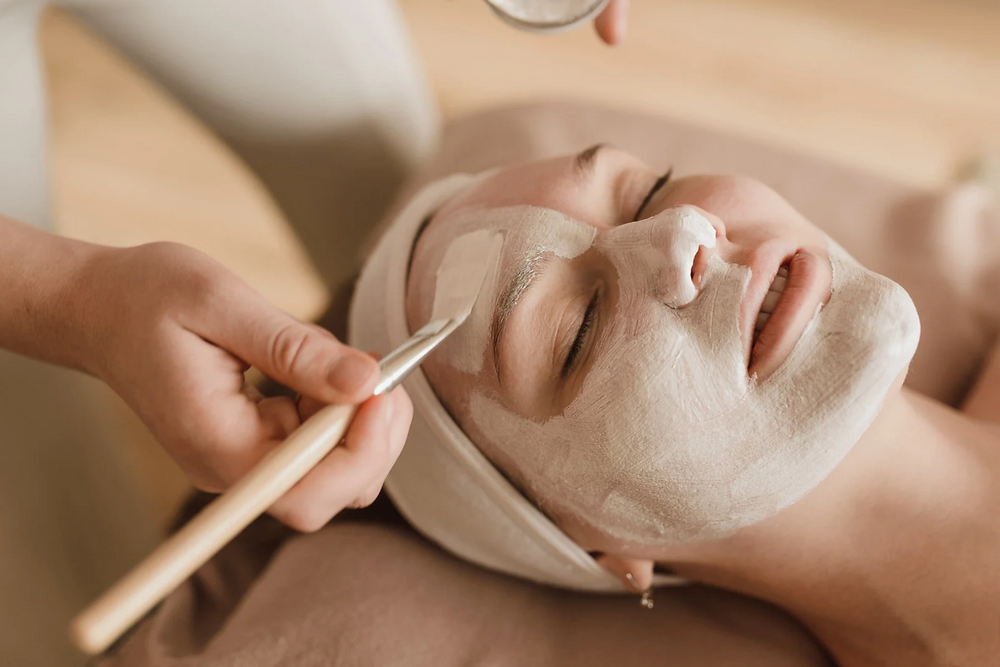Struggling with oily and acne-prone skin can feel like a never-ending battle. The excess shine, recurring breakouts, and clogged pores not only affect your appearance but also impact your confidence. When it comes to managing oily and acneic skin, understanding what your skin truly needs—and what to avoid—is key. From selecting the right ingredients to choosing appropriate treatments, it’s all about balance.In recent years, demand for advanced Skincare Treatments in Dubai has grown rapidly, especially among individuals battling oily and acne-prone skin. The climate, combined with lifestyle and hormonal factors, often worsens oiliness and leads to persistent acne. Thankfully, innovative solutions are now available to target the root causes effectively.
Understanding Oily and Acneic Skin
Oily and acne-prone skin is usually caused by overactive sebaceous (oil) glands. This excess oil, when combined with dead skin cells and bacteria, clogs pores and leads to inflammation, resulting in whiteheads, blackheads, and cystic acne.
Common Characteristics:
-
Persistent shine, especially in the T-zone (forehead, nose, and chin)
-
Enlarged or visible pores
-
Frequent breakouts or congested skin
-
Makeup sliding off easily
-
Thick or rough texture
Causes of Excess Oil and Acne
Understanding the triggers of oily and acne-prone skin can help in finding a targeted solution.
| Cause | Explanation |
|---|---|
| Hormonal fluctuations | Increase sebum production during puberty, menstruation, or stress |
| Climate | Hot and humid conditions lead to more sweating and oiliness |
| Skincare misuse | Using harsh cleansers or over-exfoliating can increase oil production |
| Genetics | Oily skin often runs in families |
| Poor diet | High-glycemic foods and dairy can trigger breakouts in some people |
| Clogged pores | From makeup, sunscreen, or not properly cleansing the skin |
Best Professional Treatments for Oily and Acneic Skin
Chemical Peels
Chemical peels use acids like salicylic, glycolic, or lactic acid to deeply exfoliate the skin, unclog pores, and reduce acne-causing bacteria. These are especially effective for oily skin because they help regulate sebum and prevent future breakouts.
Benefits:
-
Removes dead skin cells
-
Reduces blackheads and whiteheads
-
Improves skin texture and tone
Laser Therapy
Laser-based treatments target the sebaceous glands, shrinking them to reduce oil production. They also kill acne-causing bacteria and encourage collagen remodeling to smooth acne scars.
Ideal For: Persistent acne and post-acne scars
Microneedling with Radiofrequency
Microneedling stimulates skin regeneration while delivering energy to deeper layers, improving acne scars, tightening pores, and reducing oiliness. When paired with RF, the treatment penetrates even deeper, promoting clearer and more balanced skin.
Deep Cleansing Facials
These are customized facials that include extractions, exfoliation, and soothing masks to detoxify oily skin. A good facial helps purge blackheads and balance sebum levels without causing irritation.
Hydrafacial
Hydrafacial technology uses a vacuum-like device to cleanse, exfoliate, and infuse the skin with serums tailored for acneic skin. It’s gentle, yet powerful in reducing congestion and oil.
Essential Skincare Routine for Oily & Acneic Skin
While treatments are important, your daily skincare routine is the backbone of long-term results. Here’s a breakdown:
| Step | Why It Matters |
|---|---|
| Cleanser | Use a gel or foaming cleanser with salicylic acid to keep pores clean |
| Toner | Choose alcohol-free formulas with niacinamide or witch hazel to tighten pores |
| Serum | Opt for serums with ingredients like zinc, BHA, or retinol to treat acne and oil |
| Moisturizer | Yes! Even oily skin needs hydration. Look for non-comedogenic, oil-free products |
| Sunscreen | Use a lightweight, matte SPF daily to prevent pigmentation and protect the skin |
Ingredients to Look For
The following ingredients are proven to work well for oily and acne-prone skin:
-
Salicylic Acid: Penetrates pores and dissolves oil
-
Niacinamide: Reduces inflammation and controls sebum
-
Benzoyl Peroxide: Kills acne-causing bacteria
-
Zinc: Calms breakouts and regulates oil production
-
Retinoids: Promote cell turnover and prevent clogged pores
-
Clay (Kaolin or Bentonite): Absorbs oil and detoxifies skin
FAQ’s:
How often should I cleanse my oily skin?
Twice daily—once in the morning and once at night. Over-cleansing can lead to rebound oiliness.
Can I skip moisturizer if my skin is oily?
No. Skipping moisturizer can signal your skin to produce more oil. Choose a light, oil-free formula instead.
Are facials safe for acne-prone skin?
Yes, if done by a professional using non-comedogenic and antibacterial products designed for acneic skin.
How long does it take to see results from treatments?
While some treatments offer immediate results (like facials), others like laser or chemical peels may take several sessions for optimal results.
Can oily skin be cured permanently?
You can’t change your skin type, but you can manage it effectively with the right treatments and lifestyle.
Conclusion
Living with oily and acne-prone skin can be challenging, but it’s far from untreatable. With the right professional approach and consistent at-home care, you can manage oil production, reduce breakouts, and reveal smoother, clearer skin. Whether it’s deep cleansing facials, laser therapy, or chemical peels, there’s a solution that can work for you.Dynamic Clinic in Dubai offers a range of advanced solutions for individuals struggling with persistent acne and oily skin concerns. With expert guidance and personalized care, you can finally feel confident in your skin—no matter the climate or challenges.
